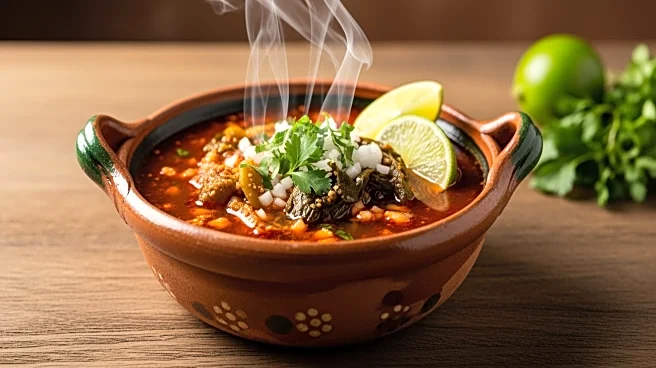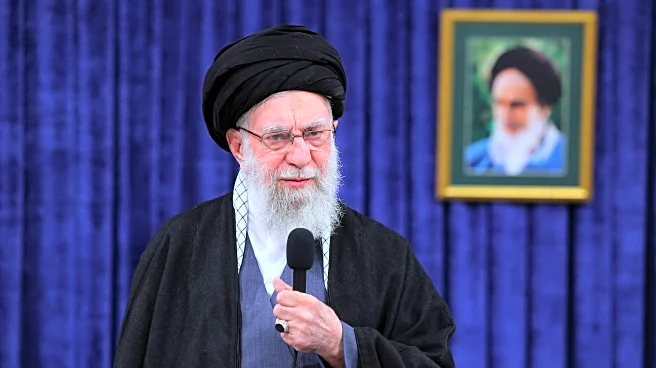What's Happening?
In Pakistan's Hindu-majority district of Umerkot, traditional face tattoos, a cultural practice among Hindu women, are being increasingly rejected by younger generations. Historically, elder women have tattooed intricate designs on the faces, hands, and arms of younger women, a practice believed to ward off evil spirits and identify community members. However, as rural Hindu communities become more connected to urban areas, many young women are opting out of these 'old ways.' Durga Prem, a computer science student from Badin, notes that social media influences have led young girls to avoid facial tattoos, fearing they may appear different or unattractive. This cultural shift is significant as it marks a departure from a tradition that has been part of the Hindu cultural heritage for centuries.
Why It's Important?
The rejection of traditional face tattoos by younger Hindu women in Pakistan highlights a broader cultural shift influenced by urbanization and social media. This change reflects the increasing desire among young women to integrate with urban lifestyles and avoid practices that may lead to discrimination or unwanted attention. As tattoos are not widely accepted in Muslim-majority Pakistan, this shift also underscores the challenges faced by minority communities in preserving cultural practices. The decline in traditional tattoos may lead to a loss of cultural identity and heritage, as these symbols have historically served as markers of community and protection against evil spirits.
What's Next?
As younger generations continue to reject traditional face tattoos, it is likely that this cultural practice will diminish further. Hindu activists like Mukesh Meghwar acknowledge that they may be the last generation to witness these tattoos on women. The ongoing cultural shift may prompt discussions within the community about preserving other aspects of their heritage while adapting to modern influences. Additionally, there may be increased efforts to educate younger generations about the historical significance of these tattoos to maintain cultural continuity.
Beyond the Headlines
The decline in traditional face tattoos among Hindu women in Pakistan raises questions about cultural preservation and identity in minority communities. As urbanization and social media continue to influence cultural practices, there is a risk of losing unique cultural traditions that have been passed down through generations. This development also highlights the broader issue of cultural assimilation and the pressures faced by minority communities to conform to dominant societal norms. The challenge lies in finding a balance between embracing modernity and preserving cultural heritage.










